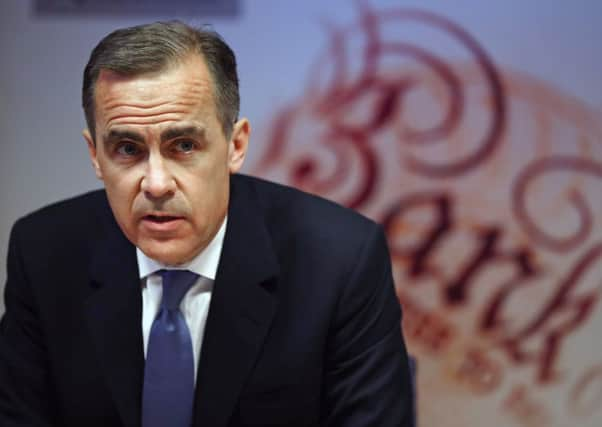With interest rates set to rise is it time to stick or twist?


Headlines containing the phrase “interest rates to rise” are apt to strike fear into the hearts of those of us who had a mortgage in the late 1980s and early 1990s.
The rate peaked at 15 per cent and the bottom dropped out of the housing market leaving many stranded in negative equity. Now, after a long period of record low interest rates, it might be hard to imagine them hitting double digits again, but all the experts are predicting a series of rises.
Advertisement
Hide AdAdvertisement
Hide AdThe rate stands at 0.5 per cet, though Martin Weale, a member of the Bank of England’s Monetary Policy Committee, says that a spring 2015 rise is “the most likely path”, adding that an increase could come sooner if wages rise faster than expected.
Ray Boulger, of independent mortgage adviser John Charcol, says: “The consensus is that it won’t increase by much next spring, probably only a quarter of a per cent, and after that the rises will be very gradual. I think even in five years time, interest rates will still be well below five per cent, which is regarded as the norm. Mortgage rates will rise slowly too.”
Even so, for property owners and prospective buyers this could be the time to fix a rate.
“The building societies have some quite cheap discounted deals, though all fixes take account of future interest rate rises,” says Ray, who suggests that it would pay for first-time buyers to take a two year fixed rate. “Property prices look likely to rise more than six per cent over the next two years so the combination of that and paying off some of the mortgage would bring your loan value to 80-85 per cent and into the range of renegotiating for a much cheaper mortgage after two years.”
Advertisement
Hide AdAdvertisement
Hide AdFirst-time buyers are the lifeblood of the property market and after years of being told “computer says no”, they are trickling back thanks to incentive schemes and mortgage deals that require small deposits.
The Government’s Help to Buy schemes have played a part in the renaissance. The first offers shared equity deals on newly-built homes. Developers, aided by the government, provide a 20 per cent interest-free, equity loan, leaving borrowers to find a five per cent deposit followed by repayments on a 75 per centLTV mortgage. There are no equity loan fees for the first five years. In the sixth year, you’ll be charged a fee of 1.75 per cent of the loan’s value. After this, the fee will increase every year.
The second phase, introduced ate last year, is the mortgage guarantee scheme, which underwrites the risk to lenders offering 95 per cent mortgages on both new and old properties valued up to £600,000. It is open to first time buyers and home movers.
While the take up of guarantee scheme is slow, it has increased competition and stimulated banks and building societies to offer their own products.
Advertisement
Hide AdAdvertisement
Hide Ad“Help to buy and high loan to value mortgages have helped the social divide because before only first time buyers with parents able to lend or give them money towards a deposit could buy a house. The rest had no chance,” says Ray.
However, the borrowing criterium on high LTVmortgages is very tight. Strict regulations imposed after the credit crunch means that they cost a lot more to offer. Lenders now have to back them up by retaining eight times as much capital. In Ray’s view Help to Buy’s equity loan scheme represents “fantastic value” for first timers.
“You have to find a five per cent deposit but because of the 20 per cent equity loan you only need a 75 per cent mortgage, which means you get cheaper rate deals and your monthly repayments are lower.
“It allows you to buy a property that is 20 per cetn more expensive, so you have the benefit of living in a home that is bigger and in a better location but your equity exposure is the same as if you bought something inferior without the scheme. The only issue is getting a good deal on the new-build property price in the first place and making absolutely sure you don’t pay over the odds.”
Advertisement
Hide AdAdvertisement
Hide AdWith economic recovery underway and house prices rising, negotiating isn’t as easy as it once. UK prices are expected to increase by an average of eight per cent this year.Here in Yorkshire, the market is steadier with prices forecast to increase by an average five per cent.
“House price rises are an issue for first time buyers,” says Ray.
“You can finally get a mortgage with a five per cent deposit but you’re now going to pay more for a property, which means now is a good time to buy if you can.”
• Twitter @propertywords